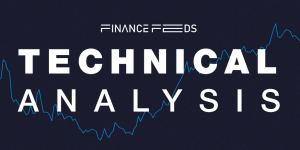The world’s 7th largest FX dealer says it doesn’t need state bailout
Deutsche Bank’s FX dealing operation is the 7th largest by market share in the world. The bank is in financial ruin but says it does not need state aid, however the German government has previously said it would not lend. Is this the twilight year for another liquidity provider?

It may well be the 7th largest interbank FX dealer by market share percentage, however Deutsche Bank has not enjoyed a clear run over the past two years with many a furrowed brow in the boardroom resulting from several setbacks.
Today, Paul Achleitner, Chairman of Deutsche Bank made significant attempts to stem the generally held view that the firm requires aid from the German government in order to remain in business.
“Let’s look at the facts: Deutsche Bank has a very strong capital basis compared to its competitors,” Mr Achleitner told German press this morning. He added new chief executive Christian Sewing was balancing the books after the turbulent year, which represents another set of losses for three straight years now, with the bank having experienced share price reductions to half its value in the wake of the investigations both in the US and in Europe.
Just over two years ago, FinanceFeeds reported that Germany’s government may well be duty bound not to offer state assistance to Deutsche Bank, however one of the world”s largest FX dealers, therefore if it goes to the wall, a liquidity contraction could occur.
Deutsche Bank’s real revenue driving division is its interbank FX and electronic trading section, based in London and is operated as a totally separate entity from its flagging German commercial and retail banking operations.
Fiscal and operational difficulties on Deutsche Bank’s home soil have created a situation in which the bank has been the subject of government discussion for almost a year now, ever since the firm began reporting grave losses. Indeed, Germany’s finance minister Wolfgang Schaeuble even issued a public statement in the spring 2016 that there was ‘nothing to worry about’ in order to sweep Deutsche Bank’s grave position under the carpet.
A series of plummeting share price episodes has once again emerged over recent weeks, and as long ago as October 2016 an even more precarious position was demonstrated in that Germany’s government stated that it would not be prepared to provide any form of state funded bail out for the bank should it eventually hit the buffers.
The company’s litany of regulatory fines for malpractices in specific core areas has not enamoured the government either, the most recent example being a $14 billion fine from the US Department of Justice for mis-selling mortgage backed securities. LIBOR and FX benchmark manipulation has also cost the bank gravely.
Despite the German government’s lack of will to prop up Deutsche Bank, a further difficulty has to be taken into consideration, that being that it has now become somewhat apparent that Germany could not provide emergency capital to the bank even if it wanted to, meaning that any lobbyists from important financial markets regions such as London would find it difficult to put pressure on the German government in order to maintain Deutsche Bank’s prominent position in the electronic trading world.
The Frankfurter Allgemeine stated at the end of 2016 that if Chancellor Angela Merkel were to offer state assistance to Deutsche Bank, it would not sit comfortably with the hard line stance she took against a not dissimilar rescue package proposed for Italy’s impoverish banks during the summer of that year, however once again there have been speculators in Germany that consider the only option for Deutsche Bank is government aid, hence a stalemate situation exists.
Chairman Paul Achleitner today rebuffed suggestions the bank may need financial support from the state. “This scenario will not come about,” he said. Mr Sewing said in November he saw no“indication” of a possible merger, following speculation that Deutsche could be looking at a tie-up with German rival Commerzbank, or Switzerland’s UBS.
“We are on track to make our first profit for three years,” Sewing, the lender’s chief executive, told Bild am Sonntag. “It is only a matter of time before this progress is reflected in the share price.”
Whilst Mr Achleitner did not proffer any reason for not going down the state aid route, it is well worth considering that even if the bank needs a government cash injection, the answer would be no if it asked.
This should compound FinanceFeeds view that Deutsche Bank will never move any of its clearing houses for FX to European mainland locations, a banal suggestion that has been bandied around by anti-Brexit socialists in London this year.
In August, the cacophony of sensationalism was abound, and at that time FinanceFeeds reiterated that no institution is moving its FX business in any form from London to Europe. It simply will not happen and Germany’s struggle with Deutsche Bank’s retail and commercial business vs its absolute market prominence in London as an interbank dealer represent exactly the dichotomous reason that this wont happen.
Sensationalist warblings such as “Deutsche Bank is shifting business out of London hinting at troubling post-Brexit future for $1 trillion industry” dominated the headlines during the summer of 2018, which is all very well, except for one very important factor: this is quite simply not true.
What Deutsche Bank actually made concrete plans to move approximately 50% of its Euro clearing business to the firm’s global head offices in Frankfurt, which is necessary to comply with European regulations. Currently, Britain is a member of the European Union, hence consolidating all of the Euro clearing business in London is compliant, however once the United Kingdom makes its exit, there will have to be a contingent in Frankfurt.
This does NOT by any means signal a shift of business from London at all. Indeed, Deutsche Bank, along with all of the Tier 1 banks, British, Swiss, American or German in origin, will remain in London in their existing form as long as London remains the world’s dominant financial markets center, which will be pretty much as long as the financial services industry exists, ie: forever.
The acceptance of English law and widespread use of English language has made London a hub for clearing globally. London handles more than 70% of the daily euro clearing business, equivalent to around €930 billion (£792 billion, $995 billion) of trades per day, according to a House of Lords report.
Deutsche Bank has shifted some of its euro clearing volumes from London-based LCH, which is owned by the London Stock Exchange, to Deutsche Börse subsidiary Eurex, however this is by no means an operational removal of any components of Deutsche Bank’s commercial structure to Europe. No bank in the world will do that.
Eurex, which is a Frankfurt-based clearing house owned by Deutsche Bank, revealed its program to award its largest customes a share of its revenues late last year, which has been construed by the pro-Europe mainstream publications in London as an attempt to incentivize large institutions to conduct their clearing in mainland Europe rather than in London and can be considered a lobbying attempt, and a futile one at that.
In October last year, Eurex Clearing said that its 10 most active participants will be eligible for a “significant share” of the returns from its multi-currency interest rate swap offering, as well as being offered seats on its board.
Deutsche Boerse at the time boldly claimed that Bank of America Merrill Lynch, Citigroup, Commerzbank, Deutsche Bank, JP Morgan and Morgan Stanley have all signed up to the program, adding to the existing 200 clients which Deutsche Boerse claims Eurex currently has on board. Since then only a small percentage of clearing has taken place in Europe compared to existing business in London (probably to maintain compliance with having Euro clearing in Europe to a certain extent of the entire global business).
Indeed, these are major Tier 1 FX dealing banks, and yes they may well have signed up to the program, but that absolutely does not indicate a priority to clear all their trades in Germany. No Tier 1 bank would even consider doing that, and LCH Clearnet’s firm, London-based OTC FX clearing customer base will remain absolutely undiminished.
“This market-led initiative will benefit clients and the broader market place through greater choice and competition, improved price transparency as well as reduced concentration risk,” said Eric Mueller, Eurex’s chief executive last year.
Competition is not fostered by offering conflicting ownership stakes in clearing houses which are located far from the mainstay of interbank dealing and have no place in this industry’s global topography or infrastructural considerations.
Underlining this further, Deutsche Bank very quietly signed the lease for a new London headquarters at 21 Moorfields recently, despite threatening to sack staff in the City due to Brexit, demonstrating that nationalistic politics may be a generator of interest for Europhile mainstream media, but that when it comes to sensible business, London is home.
Deutsche Bank, along with other Tier 1 banks, must realize that their core business activity is the provision of prime brokerage services to electronic financial markets participants.
Mainland Europe does not have a developed electronic trading sector in any shape or form, and before any dissenters seek to present Deutsche Bank as Frankfurt’s equivalent to Canary Wharf’s institutions, it is worth bearing in mind that Deutsche Bank conducts no electronic financial markets business whatsoever from Frankfurt, instead doing so from London, which is at odds with the all-controlling political stance of the socialist government of its host nation, obviously because business efficiency is more important than post-war socialist-progressive nationalist aspirations.
If Deutsche Bank in its current form does actually go to the wall, it may be that the only remaining division of it will be its investment banking and FX dealing business, which would remain in London and render it a totally London-based core business-dependent institution.









